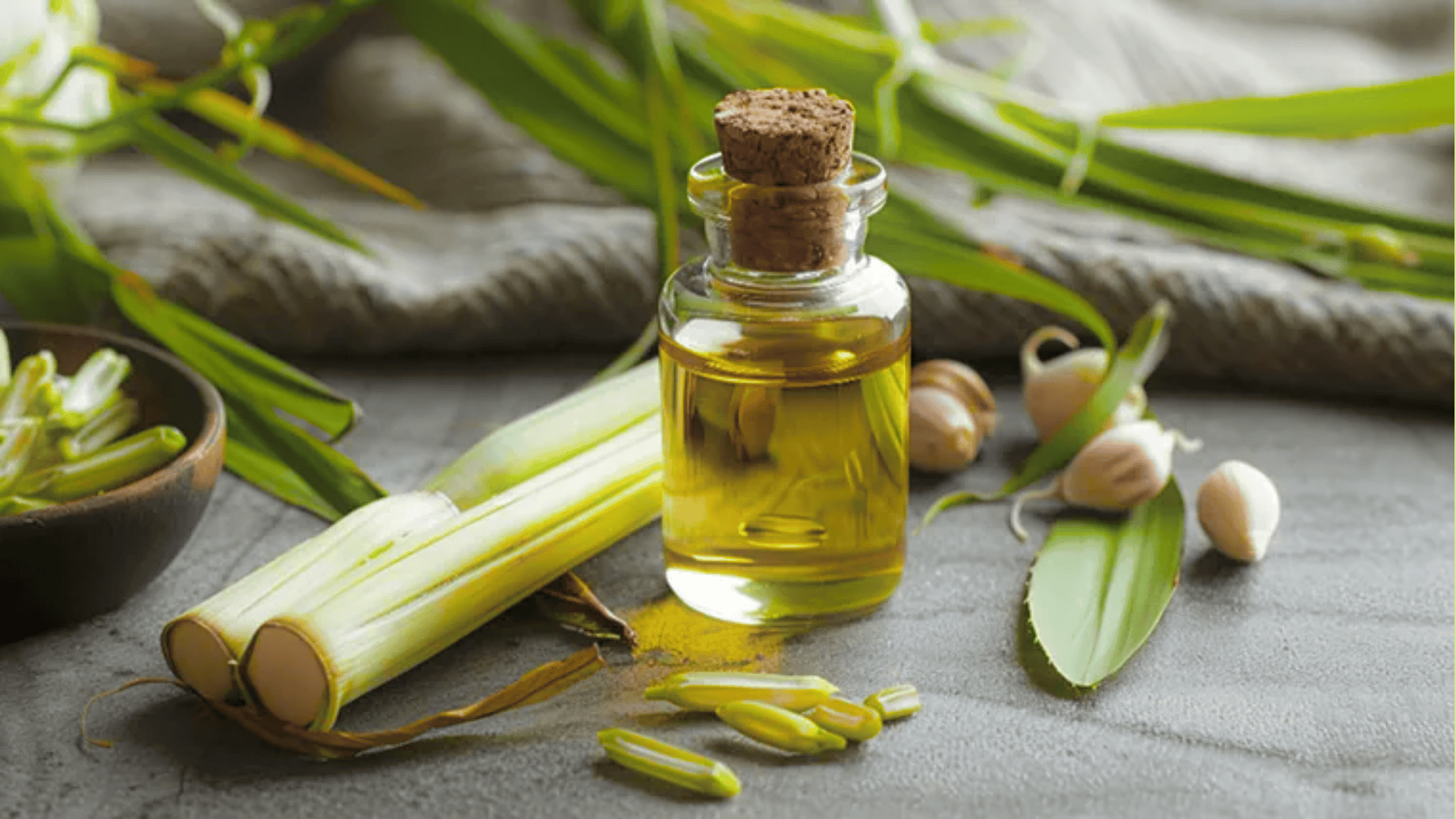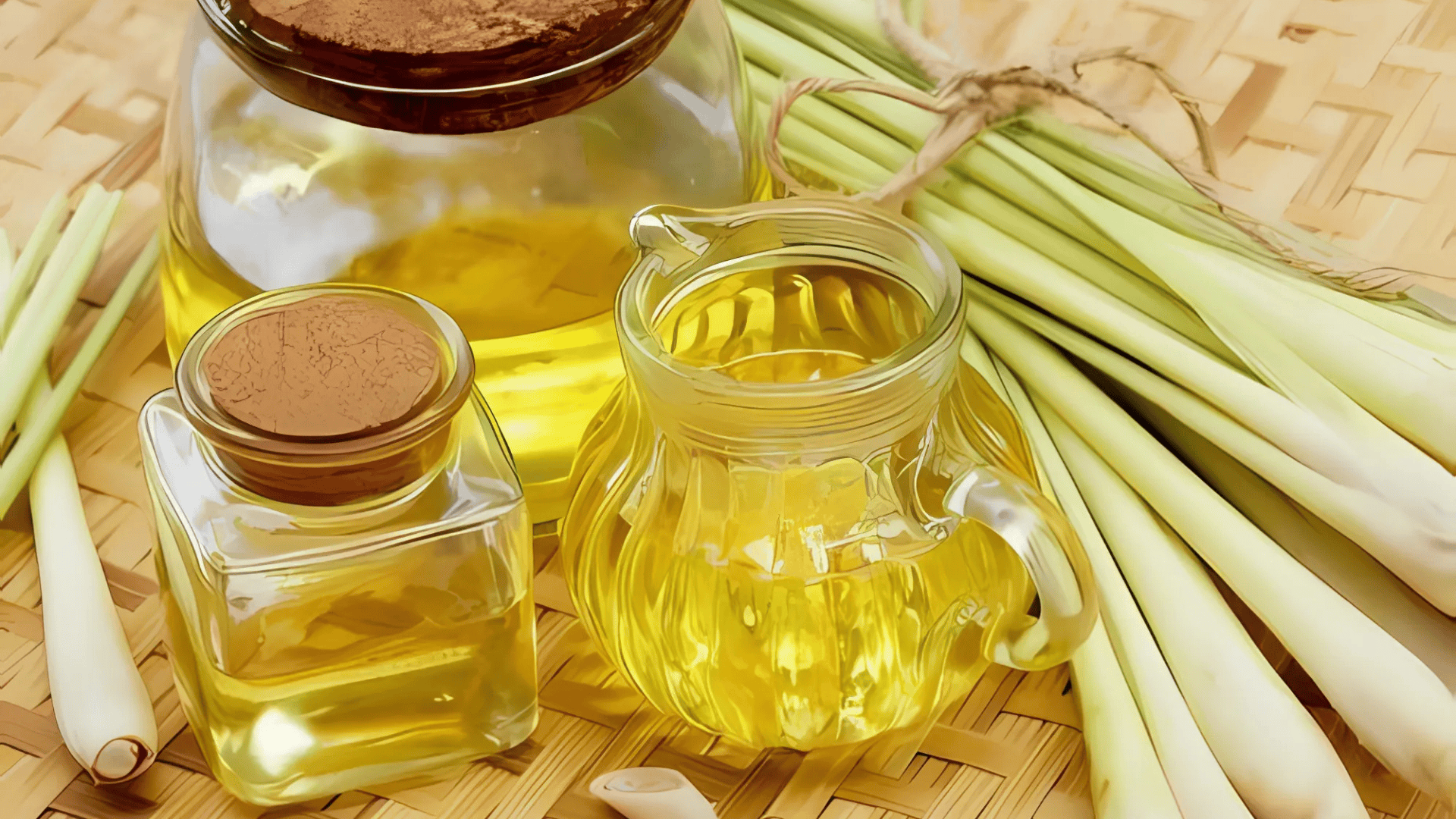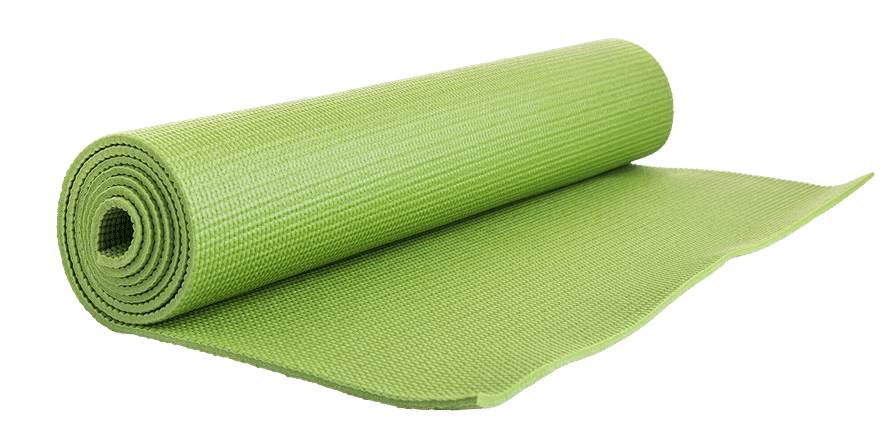The first time I smelled lemongrass essential oil, its clean, lemony scent instantly caught my attention. If you’ve ever felt worn down or needed something to lift your mood, this oil might be worth looking into.
In this post, I’ll walk you through the most helpful lemongrass essential oil benefits. I’ll cover how it may ease pain, support your skin, calm your nerves, and even help with unwanted germs.
You’ll also find simple tips on how to use it, if you’re adding it to your diffuser, mixing a muscle rub, or freshening up your space.
If you’re curious about what this oil can do for your well-being, you’re in the right place. Let’s keep it simple and useful.
Benefits of Lemongrass Essential Oil
Lemongrass essential oil is widely appreciated for its wide range of wellness-related uses.
From promoting physical comfort to supporting emotional balance, its natural compounds offer many advantages when used correctly.
1. Anti-Inflammatory and Pain Relief
Lemongrass oil contains citral, which helps your body fight inflammation naturally. This compound works to calm inflammatory responses in your tissues and joints.
People often use this oil for joint pain, arthritis, headaches, and muscle soreness. The warming effect helps increase blood flow to painful areas.
Traditional healers have used lemongrass as a fever reducer for generations.
When you apply diluted lemongrass oil to sore muscles, it provides gentle warmth. This heat helps relax tight muscles and reduces stiffness.
The anti-inflammatory action works both on the surface and in the deeper tissues.
2. Antibacterial, Antifungal, and Antiseptic
Research shows lemongrass oil can stop harmful bacteria like Staphylococcus aureus from growing. It also fights fungi such as Candida albicans that cause infections.
You can use this oil for minor wounds, athlete’s foot, acne, and skin infections. The antimicrobial properties help keep wounds clean while they heal. Many people find it effective for treating fungal nail problems, too.
The antiseptic qualities make it useful for cleaning cuts and scrapes safely. Always dilute the oil properly before applying it to broken skin. This prevents irritation while still providing antimicrobial protection.
3. Digestive Support
Traditional medicine uses lemongrass oil to calm upset stomachs and digestive problems. It helps relieve stomach cramps, bloating, nausea, and indigestion naturally.
The oil may soothe inflammation in your digestive tract and support gut health. When you inhale the scent, it can reduce feelings of nausea. Some people add a drop to herbal tea for digestive support.
The antispasmodic properties help relax smooth muscles in your digestive system. This reduces cramping and allows food to move through more easily. The oil also supports healthy gut bacteria growth.
4. Mental Wellness: Stress, Anxiety, and Mood
Aromatherapy practitioners often recommend lemongrass oil for its calming effects on the mind. The fresh, citrusy scent helps reduce cortisol levels in your body.
When you inhale this oil, it may help lift your mood naturally. The scent supports mental clarity and reduces fatigue during long days. Many people find it helps them focus better on tasks.
The oil works well for anxiety relief when used in a diffuser. It creates a peaceful atmosphere without being overpowering. Regular use may help you feel more balanced and centered.
5. Skin and Hair Health
Lemongrass oil acts as a natural astringent that helps tone your skin. Its antimicrobial properties control excess oil production and reduce acne breakouts.
For hair care, this oil strengthens hair follicles and improves scalp health overall. It helps combat dandruff and flaky scalp conditions effectively. The oil also adds natural shine to your hair.
When diluted properly, it can be added to facial cleansers and toners. The oil helps minimize pores and gives skin a fresh, clean feeling. Many people notice fewer blemishes with regular use.
6. Insect Repellent and Natural Deodorizer
Lemongrass oil naturally repels mosquitoes, flies, and other insects without harsh chemicals. The strong scent interferes with insects’ ability to locate their targets.
You can use it in homemade bug sprays and surface cleaners around your home. The oil helps eliminate unpleasant odors and freshens indoor air naturally. It works well in areas where pets spend time.
The deodorizing properties make it useful in homemade air fresheners and carpet cleaners. Unlike synthetic fragrances, this natural scent doesn’t cause headaches or respiratory irritation. It leaves a clean, fresh smell that fades naturally.
7. Immune and Heart Health Support
The antioxidant properties in lemongrass oil help protect your cells from free radical damage. These antioxidants support your immune system’s ability to fight off illness.
Some research suggests this oil may help lower cholesterol levels naturally. It may also support cardiovascular health when used as part of a healthy lifestyle. Traditional practitioners use it in mouth rinses for gum inflammation.
The oil supports overall wellness by reducing oxidative stress in your body. This helps your organs function better and may slow the signs of aging. Regular aromatherapy use can boost your overall sense of well-being.
How to Use Lemongrass Essential Oil

To make the most of lemongrass essential oil, it’s important to understand the safe and practical ways to include it in your routine.
1. Aromatically
Add a few drops to your diffuser for stress relief and mood enhancement. The scent fills your space with a fresh, uplifting aroma. You can also inhale directly from the bottle for quick relief.
For nausea or mental fatigue, hold the bottle under your nose and breathe deeply. This method provides fast relief when you need it most. The scent works quickly to clear your mind and settle your stomach.
2. Topically
Always dilute lemongrass oil with a carrier oil before applying to your skin. Good carrier oils include coconut, jojoba, sweet almond, or olive oil. A safe dilution is 2-3 drops per tablespoon of carrier oil.
You can use diluted oil in massage blends, facial oils, and scalp treatments. It works well in homemade deodorants and body oils, too. Always test on a small skin patch first.
3. Internally (Use with Caution)
Only use food-grade lemongrass oil internally under professional guidance. A qualified aromatherapist or healthcare provider should supervise internal use. This method carries risks without proper knowledge.
Some practitioners add tiny amounts to herbal teas or capsules for specific conditions. Never use internal methods without consulting someone trained in essential oil safety. The concentrated nature requires expert guidance.
DIY Recipes for Lemon Grass Oil
These simple blends let you enjoy the practical benefits of lemongrass essential oil in everyday routines.
| Use Case | Ingredients | Instructions |
|---|---|---|
| Natural Room Spray | 10 drops lemongrass oil, 1 cup water, 2 tbsp witch hazel | Combine all ingredients in a spray bottle. Shake well before each use. Spray around the home. |
| Muscle Rub | 3 drops lemongrass oil, 2 drops peppermint oil, 2 tbsp carrier oil | Blend oils and apply to tense areas. Massage gently into sore muscles and joints. |
| Hair Rinse | 5 drops lemongrass oil, 1 cup apple cider vinegar, 1 cup water | Mix and use as a final rinse after shampooing. Rinse out thoroughly for scalp comfort. |
| Bug Spray | 5 drops each of lemongrass, citronella, eucalyptus oils; 4 oz water; 1 tbsp witch hazel | Shake all ingredients in a spray bottle. Use on exposed skin before spending time outdoors. |
Each of these recipes is easy to prepare and uses ingredients that are often already on hand.
Safety Tips for Using Lemon Grass Oil
To use lemongrass essential oil responsibly, it’s important to follow a few simple precautions:
- Always dilute before use. Applying undiluted lemongrass oil directly to the skin can cause burns or irritation. Mix with a carrier oil like coconut or jojoba before applying.
- Consult a healthcare provider if needed. Avoid use during pregnancy or breastfeeding unless cleared by a doctor. People with asthma, kidney conditions, or sensitive skin should seek medical advice before use.
- Perform a patch test. Before trying any new oil, test a small amount of diluted oil on the inner wrist. Wait 24 hours to check for redness, itching, or irritation.
- Keep out of reach of pets and children. Lemongrass oil can be harmful to animals, especially cats and small dogs. Store oils in a secure, cool location away from kids and pets.
Wrapping Up
I hope this gave you a better understanding of lemongrass essential oil benefits and how they can fit into your everyday life.
From easing stress to helping with skin or household use, this oil has a lot to offer when used the right way.
Remember, it’s best to keep things easy. Use small amounts, follow safety tips, and don’t be afraid to ask a professional if you’re unsure.
Taking care of yourself doesn’t have to be a big task. Even one small change, like using an essential oil, can make a real difference over time.
If you found this helpful, feel free to check out more posts for ideas that support your well-being in real, doable ways.



















